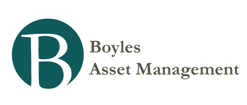Inflation may be coming. Time to look for a hedge. - By Whitney Tilson and John Heins
Because inflation hasn't afflicted
We'd love for policymakers to successfully reignite the
What do we recommend? We respect many of those who advocate gold, but, like Ackman and Robertson, we believe it's too difficult to assign a value to the metal. Instead, we prefer high-quality companies with significant foreign exposure and the ability to raise prices. Both Microsoft and Pfizer recently reported better-than-expected earnings that signal the resiliency of each company's business. In Microsoft's case, those results don't yet reflect the launch of its Windows 7 operating system, which we think will result in much better profits than analysts expect.
You can also hedge against rising inflation by investing in businesses tied to natural resources, from crude oil to agricultural commodities. One favorite in this category is Contango Oil & Gas, which explores for energy mostly in the
More adventurous investors who think that higher inflation will lead to higher interest rates can bet against long-term U.S. Treasury securities through options and various exchange-traded funds (bond prices generally fall when rates rise). For example, we've shorted iShares Barclays 20+ Year Treasury Bond ETF, which is designed to gain value when yields fall and Treasury-bond prices rise. If inflation rises rapidly and rates follow suit, Treasury bonds will perform poorly.
………………..
Related previous post: Warren Buffett’s Comments on Inflation
- Hoisington Q2 2013 Letter
The secular low in bond yields has yet to be recorded. This assessment for a continuing pattern of lower yields in the quarters ahead is clearly a minority view, as the recent selling of all types of bond products attest. The rise in long term yields...
- From Ice Age To Hyper-inflation With Socgen Bear
(Reuters) - Three months ago, with the Federal Reserve nearing the end of its second major stimulus program and inflation pressures on the rise, Albert Edwards' bond market view stood out from the crowd. Societe Generale's famously bearish analyst,...
- Gundlach: Treasuries Will Rally When Qe2 Ends - By Robert Huebscher
The bonds that PIMCO’s Bill Gross sold to take a 3% short position in the Treasury market may have found a buyer in Doubleline’s Jeffrey Gundlach. In a conference call with investors last week, Gundlach said that Treasury prices would rise in the...
- Hussman Weekly Market Comment: Inflation Myth And Reality
As for the stock market, it is desirable to believe that stocks will prove to be a good hedge against inflation, since they are after all a claim on nominal cash flows which grow over time as prices increase. This was certainly the expectation in the...
- Do Stocks Provide A Sufficient Hedge Against Inflation?
A great article from Ben at The Inoculated Investor blog. Large Excerpt: So, with all of the issues with gold, I guess that leaves ownership stakes in businesses as the best inflation hedge, right? Bruce Greenwald thinks so: “The assets that are most...

